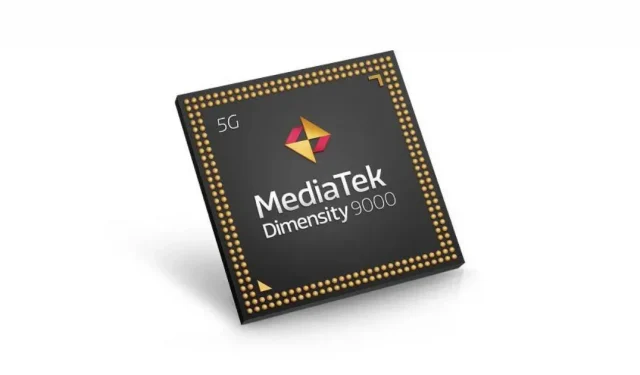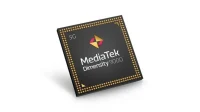Taiwanese chipset maker MediaTek announced its flagship Dimensity 9000 SoC last week and stepped up in the game with Qualcomm, which is set to release a new Snapdragon SoC next week. The Dimensity 9000 will take over the Snapdragon 898, also known as the Snapdragon 8 Gen 1. Several brands including Xiaomi, Redmi and Realme are expected to release phones with the Dimensity 9000 in the first quarter of 2022.
A new report from MyDrivers says that the MediaTek Dimensity 9000 4nm technology phone will launch next February. For comparison, the new SoC Snapdragon 8 Gen 1 will be presented on November 30th. The first phone with the new Snapdragon SoC will reportedly hit the market as early as December. Xiaomi 12 will be launched in China on December 12th and this device will be equipped with the new Snapdragon SoC.
In addition, a recent report also states that the upcoming Redmi K50 Gaming series could be powered by the Dimensity 9000 SoC. The device is also expected to feature a 144Hz OLED display, an in-display fingerprint scanner, and a 64-megapixel Sony IMX686 primary sensor.
Features MediaTek Dimensity 9000
Dimensity 9000 is the world’s first smartphone processor based on 4nm process technology. The SoC is based on the new ARM v9 architecture with a 1+3+4 cluster. It has an X2 main core clocked at 3.05GHz and three performance Cortex-A710 cores clocked at 2.85GHz. The four efficiency cores are clocked at 1.8GHz. The 10-core Mali-710 GPU is responsible for graphics and gaming performance.
The chipset supports refresh rates up to 180Hz with Full HD+ resolution and up to 320MP sensor. It is capable of recording 4K HDR video simultaneously from three camera sensors. The ISP also supports 8K30fps and 4K120fps video recording. In terms of connectivity, there’s Bluetooth 5.3 and WiFi 6E 2×2. Finally, it’s also the world’s first SoC with a maximum download speed of 7Gbps on a sub-6GHz 5G network with 3CC (300MHz) carrier aggregation.


